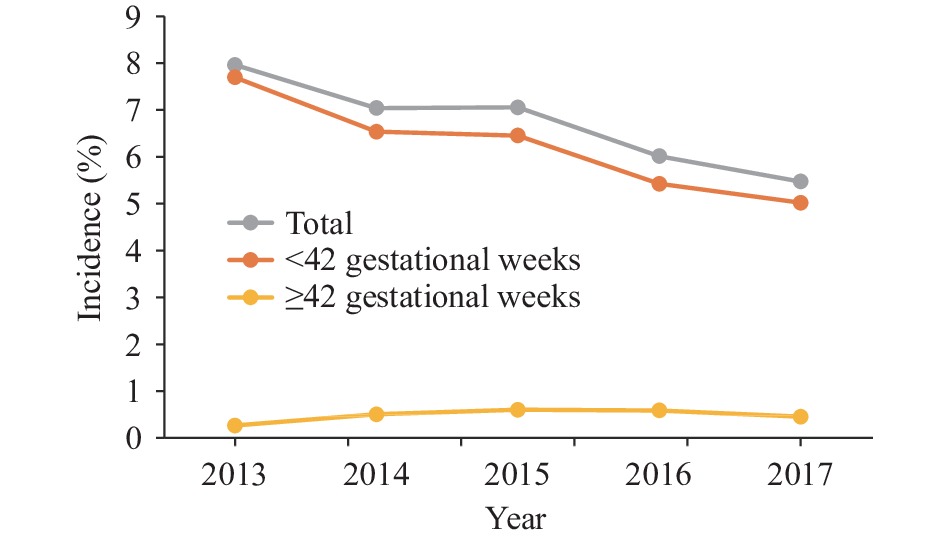2021 Vol. 3, No. 37
The prevalence of structural birth defects, especially neural tube defects, decreased after national folic acid (FA) supplementation initiation.
The prevalence of orofacial clefts (OFCs) in five counties of Shanxi Province in northern China, including most subtypes except cleft palate, showed a downward trend in the past two decades. In this study, pre-perinatal prevalence increased due to earlier detection.
Periconceptional supplementation with FA may contribute to the decline in OFCs prevalence, while the effect on the OFCs subtype needs further investigation. Continuing to advocate for earlier supplementation (3 months before conception) and increased supplementation frequency (daily consumption) could promote further reduction in the prevalence of OFCs. Specific surveillance of this effect in the era of universal three-child policy is warranted.
Passive smoking during pregnancy, which is prevalent in China, has been reported to be associated with an increased risk for neural tube defects (NTDs) in five counties of Shanxi Province in northern China.
After 4 years since the implementation of the World Health Organization (WHO) Framework Convention on Tobacco Control (FCTC) in China, 59.4% of mothers of NTDs cases and 29.4% of mothers of healthy controls reported passive smoking during the periconceptional period. The association between periconceptional passive smoking and an increased risk for NTDs remains in the study population.
It’s urgent to take measures to prevent passive smoking among pregnant women to minimize the harmful effects on offspring.
Neural tube defects can be effectively prevented by folic acid supplementation. However, compliance with the recommendations for supplementation is still low in China.
This study investigated the rate of correct use of folic acid supplementation and its risk factors among pregnant women in Beijing. Women who took folic acid correctly only comprised less than 50% of the total, possibly due to unexpected pregnancy.
Given the low rate in Beijing, an area with high health literacy, the rate may also be low in other areas in China. Regulations for mandatory fortification of food with folic acid are recommended in China.
Macrosomia has short-term and long-term adverse health effects and is thus an important public health concern. Recent decades have witnessed increasing incidence of macrosomia in many countries.
The present study used a large population-based birth cohort study to depict incidence of macrosomia among live births in rural areas of Henan Province of China from 2013 to 2017.
Among the 1,262,916 births, 82,353 were cases of macrosomia. The overall incidence of all types of macrosomia, of macrosomia with birth weight <4,500 g, and of macrosomia with birth weight ≥4,500 g were 6.52%, 5.30%, and 1.22%, respectively. From 2013 to 2017, the incidence of macrosomia decreased by 31.3% from 7.96% in 2013 to 5.47% in 2017 (
Gestational weight control through nutrition management and physical activities during pregnancy are needed to reduce incidence of macrosomia.



 Subscribe for E-mail Alerts
Subscribe for E-mail Alerts CCDC Weekly RSS Feed
CCDC Weekly RSS Feed
